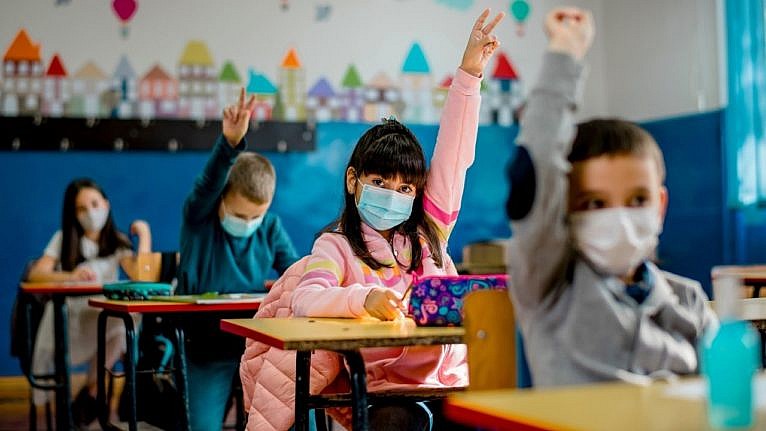More than half of kids surveyed between the ages of 8 and 12 had clinically significant depressive symptoms during the second wave.

Photo: iStock/kevajefimija
Throughout the past year and a half, parents have been worried about if and how the pandemic will affect their kids long-term. Is all the extra screen time going to have adverse effects? Will isolation prevent them from being able to properly socialize in the future? What is all this doing to their mental health? The questions and worries are endless, and have also been on the minds of researchers.
Catherine Birken, a paediatrician at Toronto’s SickKids hospital, leads a practice-based research network called TARGet Kids (The Applied Research Group for Kids) which focuses on the health of young kids. At the end of April 2020, TARGet Kids teamed up with three other ongoing studies in Ontario to look at how the pandemic has impacted children’s mental health. This week, they released the preliminary findings from data collected during February and March of 2021. The team surveyed children with and without pre-existing mental health diagnoses and found that more than half of the 758 kids aged 8 to 12 had clinically significant depressive symptoms. This number was even higher in teenagers—70 percent of those between the ages of 13 to 18 showed symptoms of clinically significant depression.
Surveys were done periodically over the course of the pandemic, but the preliminary data that has been released only includes what was gathered in February and March. These surveys focused on feelings of sadness and worry, low mood, inability to sleep and physical symptoms of anxiety, all of which are indicators of mental health problems. “One of the important things to do when we’re looking at symptoms is to look at their persistence or if they’re changing over time,” says Birken. “What we’re finding is that the symptoms are pretty persistent even despite, for example, last summer when some of the public health measures were a bit loosened. So, that’s really concerning for us.”
Birken notes that going to school entails much more than just classroom learning. By not attending school in person, kids are also losing out on extracurricular activities, sports, health services, counselling, learning support, speech pathology, occupational therapy, and more. “There’s so much support the children receive for their physical and mental health and learning in the school setting, and parents have told us that their children have really lost much of that support which really led to worse mental health outcomes.”
Back in April 2020, TARGet Kids launched a study that focused on how the pandemic has affected children’s health more broadly. That study, which was published in the Canadian Journal of Public Health in July 2021, showed an association between children following public health measures during the pandemic and a negative impact on their health. Researchers also found an association between increased screen time and symptoms of anxiety, depression, hyperactivity, attention and irritability across all age groups. While the published study included all screen time usage, including Netflix, video games and using social media, the new preliminary findings specifically looked at e-learning. “As the amount of time e-learning increased, so did the symptoms of depression and anxiety in school aged children,” says Birken. “Our team is really supportive of in person school and making sure that children can return in person to really benefit from all of what school has to offer.”
Although these latest findings have yet to be peer reviewed, by sharing this preliminary data, the research team hopes to provide policy-makers with concrete information to be used when making decisions regarding children moving forward. “I really think we need to be really careful about the policies that we put in place, because they do have such a big impact on children’s health and mental health,” says Birken. “In my opinion, there has not been a priority on children’s health and mental health throughout this pandemic. We know a lot more about COVID-19 than we did when some of the public health policies were implemented, and I think now with those learnings, we should really prioritize children’s health and well being and we should ensure that they can be in person in school.”
FILED UNDER: coronavirus Depression health service seo Kids health Mental health School
Source link : https://www.todaysparent.com/kids/school-age/a-new-sickkids-study-proves-it-its-essential-that-schools-stay-open-safely-next-year












